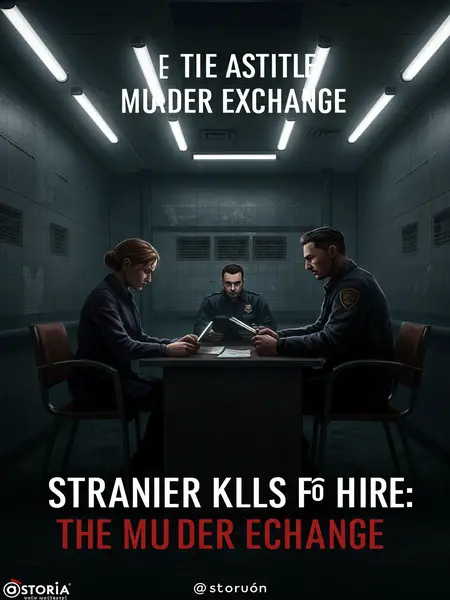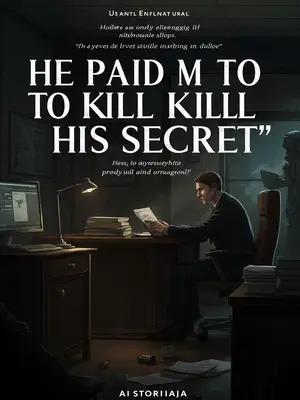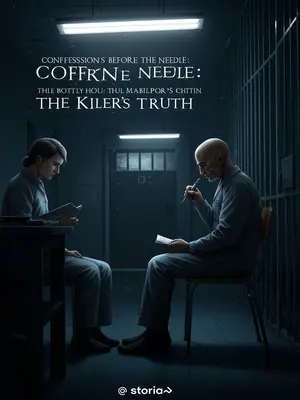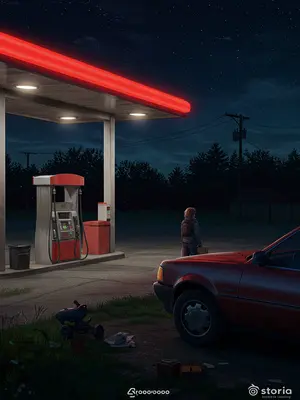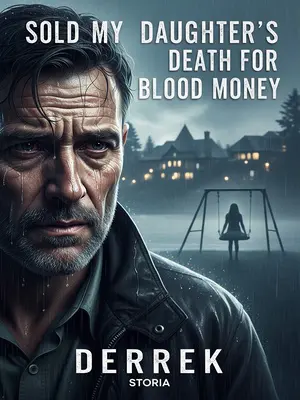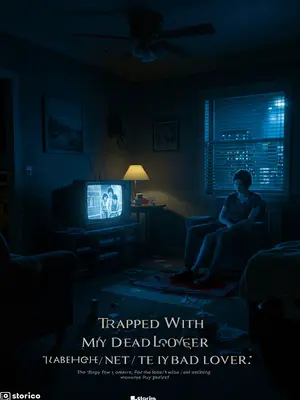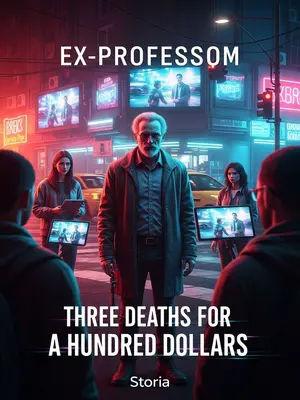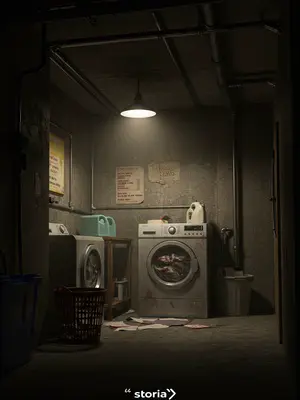Chapter 5: The Exchange
After work, Lisa dragged me out for pizza. “We’ve earned it after this mess.”
Lou Malnati’s, deep dish, extra cheese. It’s our post-case ritual—somehow, hot greasy pizza makes everything less bleak. The Cubs game played low on the bar TV, nobody really watching.
I stared at the cheese bubbling, lost in thought.
The cheese stretched between my fingers, but my appetite was gone. Cases like this stick to your ribs in all the wrong ways. I zoned out, replaying every detail of the case in my mind. Sometimes, the answer shows up when you’re not looking for it.
“Lisa, something’s off about this case.”
She set her Coke down, giving me a look. “No kidding, Sherlock. That’s been the headline for weeks.”
She waved me off. “Come on, Mike, I know what you’re thinking. We suspected Eric had an accomplice or was set up, but he won’t talk, and we’ve checked everyone he’s ever known—nothing. We work with evidence. At this point, we’ve done all we can.”
She flicked her straw at me. “Let it go. You know what the chief says: ‘We build our cases on facts, not gut feelings.’”
“Here, you don’t eat sausage, so this slice is yours. Give me your pepperoni. You sure you don’t want to try it? It’s amazing.”
We always swapped slices—Lisa hated pepperoni, I hated sausage. It was our thing. Some nights, it was the only thing that made sense.
Sausage, pepperoni. Sausage, pepperoni.
The words echoed in my head, matching the rhythm of the ceiling fan. Suddenly, the gears clicked. Something about trade, about exchange, about the way people swap one thing for another.
A chill ran up my spine. Suddenly, everything clicked into place.
I nearly dropped my slice. It was that cold rush you get when you step outside in December without a coat. My mouth went dry. I looked at Lisa, but she was busy mopping up sauce with her crust.
The killer was Eric Chen—and yet, not Eric Chen.
It hit me: what if this was a trade, not a grudge? What if Eric was the hand, but not the brain? I felt the adrenaline surge, the kind you only get when you’re about to crack a case wide open.
I dragged Lisa out of the restaurant. She yelled, “Mike, what are you doing? Hey, we can’t just leave! I haven’t even finished my pizza!”
I tossed a twenty on the table and grabbed her by the arm. “Come on. We need to get back to the station. Now.” She grumbled, but followed—she always did when I got that look.
……
At ten, only a couple officers were left at the precinct.
The squadroom was half-dark, coffee gone cold. The city felt a million miles away. I grabbed the big dry-erase marker and uncapped it with a snap.
I grabbed a marker and drew a relationship chart on the whiteboard.
I started with the Harpers, drew arrows to every known associate, then circled Eric Chen’s name in red. Lisa watched, noodles hanging from her mouth, as I connected dots.
The Harper family was cut up after death. Later, police found only part of the remains at the dump. The rest had been in stray dogs’ stomachs for hours, digested beyond recognition. In the end, the three bodies couldn’t be put back together.
It was gruesome, but also… strategic. Like someone wanted to make sure there’d be no chance to piece them back together, literally or figuratively. The dogs did the dirty work, covering any clue the killer wanted gone.
The killer had a grudge against the Harpers. Dismemberment could be about rage, but why dump the bodies at the trash station?
Lisa frowned, stirring her ramen. “You don’t do that unless you want to make a statement—or hide something you can’t let anyone find.”
Lisa slurped instant ramen, staring at nothing. “To humiliate them, obviously. Letting their bodies get eaten by dogs—whoever did this hated them.”
Her words hung in the air, the steam from her ramen swirling around her face. In this job, you learn to spot when cruelty is about more than anger. Sometimes, it’s about erasing someone from the earth.
I nodded. “Not just that. There’s another reason: there was something on the bodies the killer had to hide, something that ended up in the dogs’ stomachs.”
Evidence, maybe. A tattoo, a scar, a mark. Something that would have linked the Harpers to someone—or something—the killer didn’t want us to see. The dogs were part of the plan.
The killer must’ve had some connection to the Harpers.
I kept running in circles. Everyone has a motive. Even strangers.
We’d checked a million times but never found a link between Eric Chen and the Harper family. Maybe we missed something.
Lisa scrolled through the database, shaking her head. No calls, no texts, no credit card swipes in the same city at the same time. We were chasing ghosts.
But the truth was, Eric really had no connection to them—never met, no beef.
The records were clear. We even checked out-of-state traffic tickets. Nothing. I started doubting everything I’d learned about motive and opportunity.
Lisa shook her head. “We’re back to square one—Eric’s motive. If we rule everything else out, it’s just random. Maybe he was just sick of life or wanted a thrill.”
She tossed her fork into the sink, exasperated. “Sometimes, evil doesn’t need a reason.” I wanted to agree, but my gut still churned.
“There’s another way to look at it. Remember the pizza? You like sausage, I like pepperoni, so we swap. Or, you don’t like pepperoni, I don’t like sausage, so we trade.”
Lisa raised an eyebrow. “Yeah, so? What’s that got to do with murder?” I scribbled the word ‘exchange’ on the board, circled it twice.
The key to solving a murder is motive. You can dodge cameras, change your looks, but motive is the hardest thing to hide.
Everything comes back to why. Even the perfect crime leaves a shadow—a reason, if you know how to look.
So, think about it differently: kill a stranger, have no motive, dodge the cameras—that’s the perfect crime.
If you want to get away with murder in America, you don’t kill your own enemy. You kill someone else’s. And someone else kills yours.
‘You take out my enemy, I take out yours.’
It’s an old idea—swapping sins, crossing lines so the dots never connect. I looked at Lisa, and she looked back, eyes wide. In that moment, I knew we’d only scratched the surface of what people are willing to trade, just to bury their darkest secrets. We’d closed the file, but in Chicago, the past never really stays buried. Somewhere out there, another exchange was already in motion.
